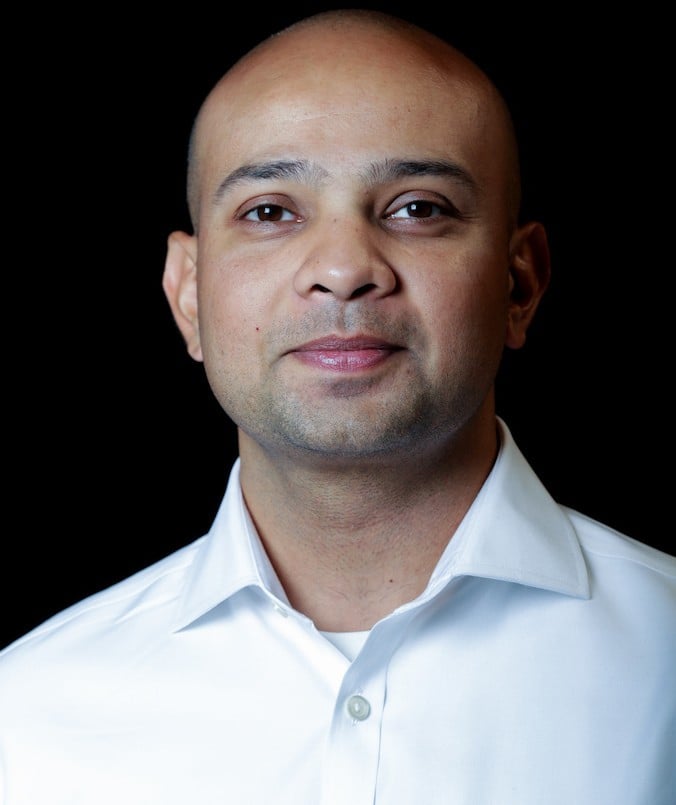An MBA schedule can include a lot of variety; from the time it takes to complete a program to the course schedule. If you want to know how to get an MBA, you’ll have a few different options when it comes to the type of program. While they will each have different MBA schedules, the curriculum and education you receive will be more constant across all of them. In this article, we’ll look at the typical program structure and length of different MBA programs, the curriculum and schedule you can expect from an MBA, and what life in an MBA program is like.
>>Want us to help you get accepted? Schedule a free initial consultation here <<
Listen to the blog!
MBA Schedule: Program Structure and Length
A traditional MBA schedule includes a 2-year curriculum, although accelerated MBA programs which last 12 to 18 months are becoming increasingly popular. These shorter MBA programs include the same MBA curriculum you can expect from a graduate business program, just on a faster timeline.
To understand the typical MBA schedule, we’ll dive into what an MBA curriculum and program structure looks like. It’s important to understand that there are multiple types of MBA programs, but the general purpose and curriculum remains almost the same.
For instance, there are full-time MBA programs, which come in 1-year and 2-year formats. There are also part-time MBA programs, which stretch the MBA schedule to 3 or more years.
Online MBA programs and hybrid programs can range depending on the program. Executive MBA programs take a 2-year schedule, while dual degrees and specialized MBA programs can take anywhere from 3-5 years and include a little more in their curriculums. And there are also one-year MBA programs such as mini MBA programs and accelerated programs.
Here’s a quick overview of the MBA timeline and credit hours you’re looking at, by MBA program type:

Your MBA schedule, and how long it takes to get your MBA, can therefore vary quite a bit depending on the type of MBA program you choose.
Next, we’ll look at what you can expect from an MBA schedule, including the main components of the curriculum and what an MBA program is used for.
MBA Schedule: Purpose and Curriculum
An MBA, or Master of Business Administration, is a graduate level program focused on, you guessed it, business. It is a discipline that has grown rapidly in the last decade, in both popularity and visibility. And according to MBA acceptance rates in the US and MBA acceptance rates in Canada, MBAs are one of the most competitive graduate programs to get into overall.
Earning an MBA has many benefits, including opening the doors to greater career opportunities, career acceleration and the chance to earn a higher salary and move into higher positions in business. MBAs are also a vehicle for professionals to move into a new career field or explore new career paths.
MBAs are unique, too, in that they attract a huge variety of applicants, from new grads to non-traditional applicants in the middle of their careers. MBA programs are open to everyone, and boast a great deal of diversity, with students across every industry and business.
What skills can an MBA give you?
Is an MBA worth it? This is what many professionals ask themselves if they’re considering going back to school and pursuing a graduate business degree. The truth is, whether an MBA is worth it for you will be for you to decide for yourself, but any MBA program can add value if you put effort back into it.
Some of the most important assets an MBA can give you is knowledge. MBAs, unlike more academically focused programs, are designed to prepare you for the “real world” of business. MBAs are focused on upgrading all of your business skills and preparing you for positions of leadership and management.
Here are some of the skills you’ll develop throughout a typical MBA schedule:
- Leadership
- Team management
- Communication, both verbal and written
- Operations management
- Business and data analysis
- Networking
- Negotiation
- Strategic thinking
- Financial literacy
- Emotional intelligence
- Global perspective
- Entrepreneurial thinking
- Problem-solving
The list goes on, but an MBA is designed to instill a higher level of business thinking in you, from the soft people skills to the hard technical ability. An MBA schedule or curriculum covers both coursework and experiential learning to get you to shift your perspective and improve your business savvy.
What does an MBA curriculum look like?
An MBA curriculum includes the core courses and electives you can expect from a graduate education, but it also emphasizes practical, experiential learning. Business requires a unique balance of knowledge and skill, thinking and application. Teamwork and leadership. An MBA schedule reflects this. We’ll look at the 5 cores of an MBA curriculum next.
An MBA’s curriculum is made up of core courses, designed to cover the complete management of all a business’s departments. While some programs let you choose what to specialize your MBA in, such as human resources or financial management, the core courses are nearly identical across all programs.
Here are some of the common core courses for an MBA schedule:
- Leadership for teams and organizations
- Business operations and management
- Finance
- Business ethics
- Marketing
- Economics
- Business strategy
MBA Schedule: How Long it Takes to Get an MBA
As we’ve mentioned, your MBA schedule can vary depending on the type of program you choose. Your MBA will take anywhere from 1-3+ years to complete.
For a general MBA timeline, we’ll look at a 2-year full-time program from start to finish. This timeline can be stretched or shrunk to suit your own MBA schedule and program type.
6-12 months. Your MBA schedule starts, of course, with the application stage. This includes preparing your MBA resume, MBA personal statement or statement of purpose, recommendation letters and more. It also involves research and choosing your program and starting on your GMAT prep. Preparing for an MBA interview can take a few weeks, since you may need to schedule your interview dates with multiple programs and practice with an MBA mock interview. Interviews are typically held after the application deadline for MBA programs, in the 1-3 months before final admissions decisions are sent out. It can take several weeks to receive acceptance letters from MBA programs, but from there you can start enrolling in courses and setting up your MBA schedule right away. You’ll usually start with a program orientation and overview, and dive right into core coursework. 12-weeks, 3 full-time courses. You’ll start with core coursework and foundations of business education. 12-weeks, 3 full-time courses Usually in the summer of your first year, you’ll complete a work placement or MBA internship. This is an important opportunity to network, gain work experience and even secure a job after graduation. Many MBA interns are hired on full-time by their internship employers. 12-weeks, 3 full-time courses. In your second year you’ll have more options to take electives or specialized courses in your areas of interest. 12-weeks, 3 full-time courses Once your core coursework and internship credits are complete, you’re all done! You can start looking for MBA jobs and preparing for job interviews!
MBA Schedule: Balancing Work, Study and Life
Students in an MBA program have to become balancing experts as they pursue their studies, potentially continue to further their careers and keep up with their personal lives on top of that.
How many hours per week does an MBA program require?
Full-time MBA programs usually require 40 hours per week for courses, homework and projects, just like a full-time job. Part-time MBA programs are usually less intensive, requiring 10-15 or even 20 hours per week instead. Online and hybrid MBAs might be appealing since they allow you to have more flexibility in your MBA schedule, while also cutting out the commute to campus.
Can you balance work and an MBA?
It is entirely possible to keep working while you earn your MBA. Most of the time, students in part-time, online or executive MBA programs are more likely to do so than full-time students. If you plan to keep working while you pursue your MBA, it’s important to stay organized, keep a detailed schedule, and keep the lines of communication with your employer open.
Life in an MBA program will be busy! You’ll have many competing responsibilities and commitments but remember that you have some say over your MBA schedule when you choose a program. It’s also up to you whether you continue working or take a break to complete your degree. No matter what you choose, it’s crucial to plan ahead, stay organized and plan to give it your all.
FAQs
1. What does an MBA curriculum look like?
MBA programs consist of core courses in business management across all departments, as well as the choice of electives to further explore certain areas or specialize your MBA. MBA programs usually include an MBA internship and extracurricular activities such as presentations and business visits. A core part of an MBA curriculum is business case studies and even case competitions or group projects.
2. How long does it take to get an MBA?
It takes between 1-2 years to complete an MBA program, although some programs may take 3+ years, depending on the MBA schedule.
3. How many hours per week does an MBA require?
Full-time MBA programs require around 40 hours per week for coursework and activities. Part-time MBA programs will typically only require 15-20 hours per week.
4. What is the fastest way to complete an MBA?
The fastest way to complete your MBA is to enroll in an accelerated 1-year program or 1-year full-time program, as these are the shortest MBA programs.
5. How long is a part-time MBA?
Part-time MBAs usually have a schedule of 3 years, although it may take more or less time depending on how many hours you can commit per week to your studies.
6. How hard is an MBA?
While they are not particularly rigorous academically speaking, MBAs are still demanding and intellectually challenging. They require a high level of thinking, collaboration, communication and commitment. And you’ll still need to study for exams!
7. Can I still work while getting an MBA?
Yes; it is possible to work while earning your MBA, and many students choose to do this, whether by enrolling in a part-time program or working flexible hours while they pursue their studies.
8. How do you know if an MBA is right for you?
It can be a challenge to choose the right MBA program or to decide whether an MBA is right for you at all. When it comes down to it, you need to decide whether an MBA will provide you with long-term value in your career and whether the expense and time commitment is worth it.

